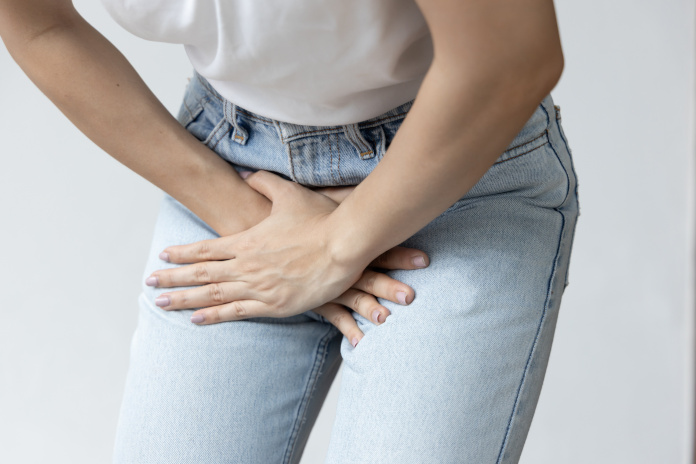Prostate health: foods to avoid and those to prioritise
With age, most men experience a decline in the health of their prostate (micturition difficulties, urinary incontinence, waking in the night ...). Which foods should you choose and which should you avoid to help maintain the health of your prostate?

The prostate deteriorates with age
First, a brief reminder that the prostate gland is a male reproductive organ located just below the bladder. Its main function is to secrete and store a component of seminal fluid, which is essential for the production of sperm.
The prostate tends to become enlarged by the time a man reaches his fifties (sometimes earlier at around 40 years of age). This puts pressure on the bladder, potentially resulting in the frequent urge to pass urine throughout the day ... and night. Changes to the prostate can also lead to compression of the urethra, the tube which expels both urine and sperm from the body. This can cause a weaker urine flow, and urinary dribbling or leaking (1).
The prostate is also subject to various other problems (2-3). Even if you’re not among those men currently affected, you can still take positive action now, by modifying your diet...
Prostate: foods to steer clear of
To help maintain a healthy prostate:
- cut down on fats (red meat, processed meat such as sausages and bacon, butter, biscuits, pastries, fried food …). Eating too much saturated animal fat in particular may triple the risk of developing certain prostate problems. Eat red or processed meat once or twice a week at most. Avoid char-grilled meat as much as possible;
- avoid phytoestrogen plants(hops in beer, soya, sage, liquorice ...) These plants can have estrogenic effects that are harmful to the prostate;
- consume dairy products in moderation (cheese made from cow’s and sheep’s milk …) Some researchers believe that excess calcium may increase the risk of certain prostate problems;
- reduce your consumption of grains;
- drink less black tea, coffee, hot chocolate and fizzy drinks (these have a diuretic effect – they increase the production of urine) ;
- avoid white wine, champagne, cider and any strong alcohol (4-6).
Foods to prioritise to support a healthy prostate
In contrast, the foods to focus on are:
- oily fish (salmon, anchovies, herring, trout ...) Rich in omega-3, these help to lower the risk of prostate problems;
- fruit and vegetables (especially oranges, clementines, lemons, pomegranates, unsalted and unroasted nuts, artichokes, asparagus, broccoli, avocados, peppers ...)
- pulses(beans, lentils...) ;
- garlic, onions, sunflower and pumpkin seeds, linseeds, turmeric;
- foods rich in lycopene (tomatoes, pink grapefruit, papaya...)
- low-mineral water;
- red wine, in moderation naturally (one to two glasses a day). Red wine contains flavonoids which help restrict the conversion of male reproductive hormone into DHT. Its catechins also help prevent male reproductive hormone from being converted into estrogen, a female hormone that adversely affects the prostate (7-8).
3 natural substances that are particularly good for the prostate
Certain natural substances have proved to be very beneficial for helping to prevent or alleviate prostate problems and their consequences:
- saw palmetto (Serenoa repens). This is used as an adjuvant in the symptomatic treatment of urination problems associated with an enlarged prostate. It helps to ensure normal urinary function in men over 45. In particular, it plays a role in supporting urine output. It contains free fatty acids, flavonoids, phytosterols, polysaccharides, alkanes and alkanols (9-10) ;
- common nettle root (Urtica dioica). This is also used as an adjuvant in the symptomatic treatment of enlarged prostate-related urination problems. Also known as stinging nettle or nettle leaf, it contains lectins, sitosterol, polysaccharides, lignans and tannins (11-14) ;
- African plum tree (Pygeum africanum). This also helps to combat problems of the prostate. It plays a role in ensuring normal prostate and urinary function in men. The tree’s bark contains beta-sitosterol, fatty acids, linear alkanes ... (15-18)
If you’re looking for a dietary supplement that combines all three of these excellent compounds, why not choose the unique formulation ProstaNatural Formula, rich in saw palmetto, common nettle root and African plum. This highly-rated supplement also contains extract of flower pollen, diindolylmethane (DIM and beta-sitosterol.
References
- Roehrborn CG. Benign prostatic hyperplasia: an overview. Rev Urol. 2005;7 Suppl 9(Suppl 9):S3-S14.
- Leslie SW, Soon-Sutton TL, Sajjad H, et al. Prostate Cancer. [Updated 2020 Oct 28]. In: StatPearls [Internet]. Treasure Island (FL): StatPearls Publishing; 2020 Jan-.
- Nickel JC. Prostatitis. Can Urol Assoc J. 2011;5(5):306-315. doi:10.5489/cuaj.11211
- Devrim E, Durak I. Is garlic a promising food for benign prostatic hyperplasia and prostate cancer? Mol Nutr Food Res. 2007 Nov;51(11):1319-23. doi: 10.1002/mnfr.200600302. PMID: 17918170.
- Bravi F, Bosetti C, Dal Maso L, Talamini R, Montella M, Negri E, Ramazzotti V, Franceschi S, La Vecchia C. Food groups and risk of benign prostatic hyperplasia. Urology. 2006 Jan;67(1):73-9. doi: 10.1016/j.urology.2005.07.030. PMID: 16413336.
- Trudeau K, Rousseau MC, Parent MÉ. Extent of Food Processing and Risk of Prostate Cancer: The PROtEuS Study in Montreal, Canada. Nutrients. 2020;12(3):637. Published 2020 Feb 28. doi:10.3390/nu12030637
- Hodge AM, English DR, McCredie MR, Severi G, Boyle P, Hopper JL, Giles GG. Foods, nutrients and prostate cancer. Cancer Causes Control. 2004 Feb;15(1):11-20. doi: 10.1023/B:CACO.0000016568.25127.10. PMID: 14970730.
- Lin PH, Aronson W, Freedland SJ. Nutrition, dietary interventions and prostate cancer: the latest evidence. BMC Med. 2015;13:3. Published 2015 Jan 8. doi:10.1186/s12916-014-0234-y
- EFSA Register of Questions - Europa EU
- Kwon Y. Use of saw palmetto (Serenoa repens) extract for benign prostatic hyperplasia. Food Sci Biotechnol. 2019;28(6):1599-1606. Published 2019 Apr 17. doi:10.1007/s10068-019-00605-9
- EFSA Register of Questions - Europa EU
- Moradi HR, Erfani Majd N, Esmaeilzadeh S, Fatemi Tabatabaei SR. The histological and histometrical effects of Urtica dioica extract on rat's prostate hyperplasia. Vet Res Forum. 2015;6(1):23-29.
- Lichius JJ, Muth C. The inhibiting effects of Urtica dioica root extracts on experimentally induced prostatic hyperplasia in the mouse. Planta Med. 1997 Aug;63(4):307-10. doi: 10.1055/s-2006-957688. PMID: 9270373.
- Ghorbanibirgani A, Khalili A, Zamani L. The efficacy of stinging nettle (urtica dioica) in patients with benign prostatic hyperplasia: a randomized double-blind study in 100 patients. Iran Red Crescent Med J. 2013;15(1):9-10. doi:10.5812/ircmj.2386
- EFSA Register of Questions - Europa EU
- Ishani A, MacDonald R, Nelson D, Rutks I, Wilt TJ. Pygeum africanum for the treatment of patients with benign prostatic hyperplasia: a systematic review and quantitative meta-analysis. Am J Med. 2000 Dec 1;109(8):654-64. doi: 10.1016/s0002-9343(00)00604-5. PMID: 11099686.
- Wilt T, Ishani A, Mac Donald R, Rutks I, Stark G. Pygeum africanum for benign prostatic hyperplasia. Cochrane Database Syst Rev. 2002;1998(1):CD001044. doi:10.1002/14651858.CD001044
- Breza J, Dzurny O, Borowka A, Hanus T, Petrik R, Blane G, Chadha-Boreham H. Efficacy and acceptability of tadenan (Pygeum africanum extract) in the treatment of benign prostatic hyperplasia (BPH): a multicentre trial in central Europe. Curr Med Res Opin. 1998;14(3):127-39. doi: 10.1185/03007999809113352. PMID: 9787978.
Keywords
3 Days
Quick shipping
Quick shipping; good price. No issues!
Mary McCarty
4 Days
Thr product is very good and is helping…
Thr product is very good and is helping me on my health. Then is always on time
LUGO Luz
7 Days
Buying was fine
Buying was fine. I had problems with the website not recognizing my login info, and had to call to get it fixed. Other than that, everything was good.
David S. Clark
7 Days
Your super maca and super ginseng are…phenomenal
Your super maca and super ginseng are phenomenal supplements that compliment each other when taking them together. Fantastic feeling of well-being and lots of mid day energy without the crash.
Keith Mason
9 Days
I have had amazing results with every…
I have had amazing results with every supplement I've purchased. I am extremely satisfied with this company
kirstin Torres
10 Days
Fine products
Fine products . They are on the leading edge of online supplements. The only issue -so far-is they sometime run out of subscription items.
Jason Argos
12 Days
The ordering process is very user…
The ordering process is very user friendly and the products always come in a timely manner.
CARTER Rhonda
13 Days
The price for Dr
The price for Dr. Pero's AC-11 is reasonable and in line with his views. (my former colleague). Keep it pure.
CAMPBELL Clayton
16 Days
Right on every time.
Right on every time.
Arthur Nicholas
19 Days
They are cheaper than everyone else and…
They are cheaper than everyone else and the shipping was fast. Great company.
Patricia Adams
26 Days
Availability of quality health…
Availability of quality health supplements and it's wide variety is impressive. Ordering is seamless and shipping even during the holidays is well streamlined.
Mohamad Hussein
40 Days
A Product worth waiting for when not…
A Product worth waiting for when not available and then arriving as a surprise!
DOMINIC
42 Days
On time shipping
On time shipping
GEORGE Verne
43 Days
Ordering was easy and the product was…
Ordering was easy and the product was delivered with no problems. Appreciated that I was notified when it would arrive. Thanks!
MascarC
49 Days
Great customer service - responsive …
I ordered from them and my item was unavailable for sometime. I was super happy when they reactivated my order and shipped my item which arrived very quickly. Great customer service.
Ruth Rueter




